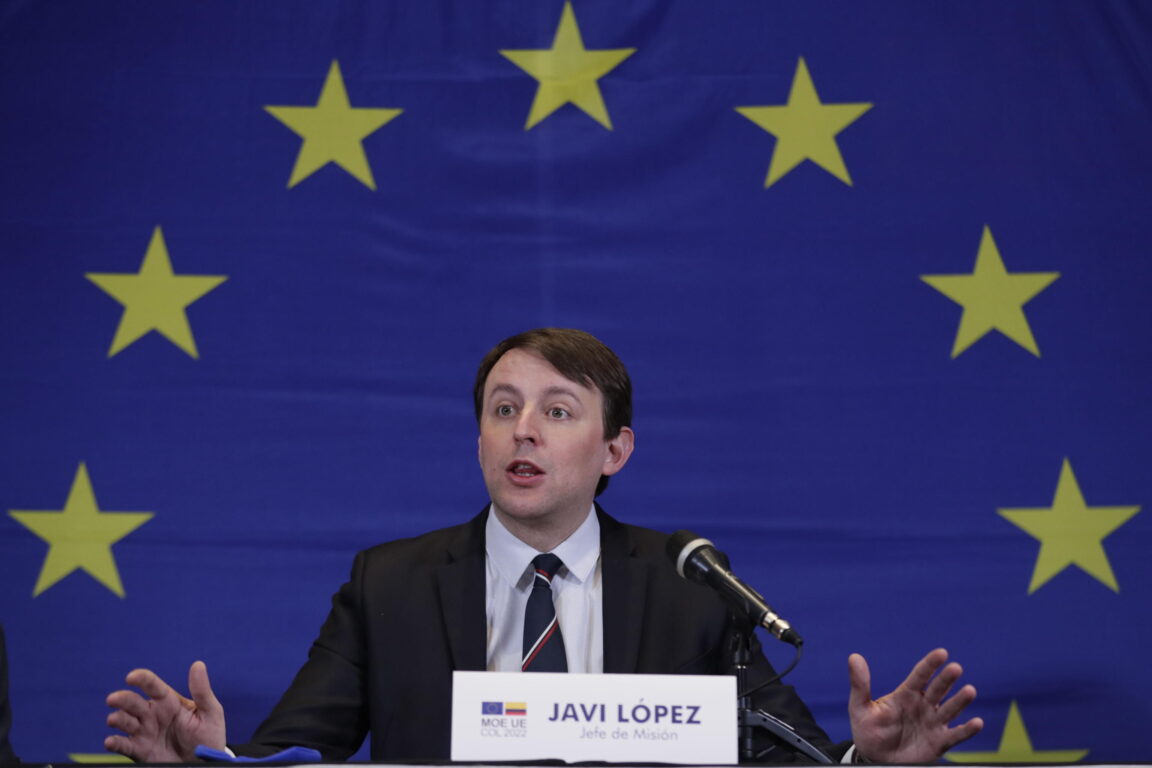From Strasbourg – February 2024. While a thick layer of smog asphyxiates Milan and the Po Valley, arousing a certain fear even among citizens, an agreement is reached in Brussels between the Parliament and the Council on the new directive on the quality of air. The rapporteur for the measure, which, barring any surprises, should be approved before the European elections in June, is Spanish MEP Javi López, from the S&D group. “Air pollution is the greatest threat to human health and with this directive we want to provide a tool to find a solution and protect the health of citizens,” López explains to the microphones of Open on the sidelines of the last plenary of the European Parliament. The text on which the European institutions reached agreement contains an exemption designed specifically for the Po valley and loudly demanded by the Meloni government. The regions of northern Italy have effectively been given ten additional years to achieve the air quality objectives set at community level. However, warns López, this exemption should not be interpreted as a possibility “to ignore the new rules for the next ten years”.
An agreement was reached between Parliament and the Council in recent weeks. Will the new directive become law before the June elections?
“Yes, I anticipate that the final vote will take place in March within our committee and then during the last plenary in April in Strasbourg. Pollution poses the greatest threat to human health. And trying to reduce its levels is one of the key elements of the European Green Deal. With this new directive, we want to create a tool to solve the problem in the coming decades, before the mandate expires.”
The final text of the agreement provides that certain regions, including the Po valley, will have ten additional years to respect the new limit values on air quality. Is this an exemption requested by the Italian government?
“The flexibility contained in the new directive was requested by the Council, but we must explain clearly what we are talking about. We have approved new air quality standards that halve the air pollution limit values authorized by law. This is a big step in the right direction, bringing the European Union closer to the World Health Organization guidelines. At the same time, we recognize that this process must take place over several years, for some by 2030 and for others by 2040. Thanks to the guarantees and conditionalities that have been included in the text, more flexibility is granted to certain areas. and you will have more time to achieve these goals. However, this does not mean that one can simply ignore the new law for ten years. »
Many regional presidents in northern Italy have criticized the decision to revise the air quality limit values and say they are unattainable for the Po Valley. Is this so? Or do you think too little has been done so far?
“It is true that the orography of the Po Valley is different from that of many other European regions. But the question we should ask ourselves is another: what can we do to remedy this situation? Air pollution, and it is a fact, affects the health of the citizens of northern Italy. We must therefore think about all the changes we can make to our mobility, to the model of our cities, to the electrification of our cars, to the transition of our industry towards new forms of clean energy. We must take all of these areas into account to truly tackle the problem of pollution, accelerate the ecological transition and create a fairer socio-economic model. »
With the new directive, it is planned to intensify checks on effective compliance with air quality limit values. How do you plan to proceed?
“We will act on two fronts. First of all, the obligatory service of monitoring pollution levels for all member countries will be strengthened, allowing more accurate and detailed information to be obtained. Second, the European Commission will have more tools to ensure better enforcement of the law. But in addition to the “stick”, there will also be the “carrot”. This means that there will be more planning and support from the European institutions, also through the allocation of resources in this sector and in particular with the recovery plans and Next Generation EU.”
What financial tools will member countries and local administrators be able to access to tackle the problem of air pollution?
“The fight against pollution is closely linked to decarbonization initiated with the European Green Deal, also financed by Next Generation EU. During this legislature, we have allocated resources equal to three quarters of Spanish GDP: 750 billion. Italy and Spain are the two countries that have benefited the most from these funds, at least a third of which must be devoted to measures linked to the green agenda. This means working towards cleaner energy, greater energy efficiency in our buildings, changing the way we travel and supporting industry in the decarbonization process. This is already happening thanks to the resources allocated by the European Union.
The new directive states that citizens will be entitled to compensation if their health is damaged due to violations of national air quality standards. How exactly will this mechanism work?
“The new directive opens the doors to the right to compensation. This principle can be applied in all cases where there is a link between damage to human health and levels of air pollution. Situations like this are starting to show up in courts around the world, including in Europe. It will not be an easy path, but now, with this directive, we recognize this possibility from a legal point of view. We are extremely satisfied with this, because it will allow us to strengthen citizens' rights, the legal force of the new directive and the responsibility of all administrations in matters of air quality and citizens' health.”

Cover photo: ANSA/Mourad Balti Touati | Smog in Milan (January 8, 2020)

